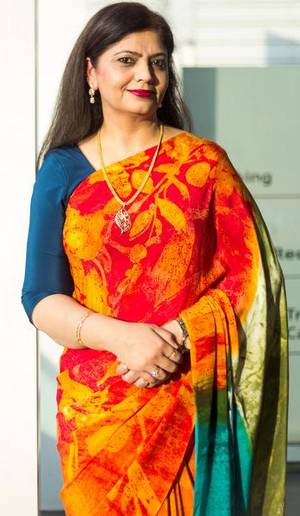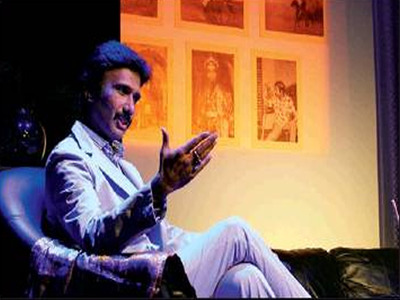Chennai, TAMIL NADU / London, UNITED KINGDOM :
Chennai-born Rehana Ameer chats about how she got into British politics, and the need for youth to get into public affairs
Rehana Ameer was your quintessential Triplicane girl. Growing up, she dreamt of becoming a doctor, but life had other plans for her. She got into the IT sector and was sent to the UK, after which she kept shuffling between the two countries. In 2008, she made a decision – to relocate to the UK with her husband and children.
Today, 10 years later, Ameer is creating a name for herself in London. Apart from the business she runs, she’s also popular for being the first Indian-born woman to be elected as a councillor to a ward in the City of London. In the city for The Glassbox’s Meraki speaker series, Ameer opens up on how she got into the political arena and the need for younger people to spark a change in the system. Excerpts:
You’re doing well for yourself in the UK, but you’re no stranger to Chennai, right?
I was born and raised in Triplicane, and got married to another Chennaiite – from Royapettah. We moved to the UK and that’s where my journey began.
You are the first Indian-born woman to be elected to the City of London Corporation. Can you recall that day when you were announced winner?
I didn’t realise that it would become this big. There was a lot of pressure in the run-up to the elections; the campaigning was tough. There was a blast the day before elections. What helped me was my focus and keeping my eye on the prize.
After winning, I didn’t show my happiness. The person I defeated was active in the circuit for more than three decades and I had to show my respect. But within me, I was very happy that my hard work had paid off. Only after my son said, “Mama, you’ve won” three times, did it sink in.
How’s a day in your life looking after the win?
The role I’ve taken in my ward in the City of London is a voluntary civic responsibility role. In some wards, you have 10 councillors but in mine, there’s only me and another person… so the work is shared. I sit on three large committees in which we have regular weekly meetings; three days go into that. One good thing about London is that most things are largely scheduled and planned. I also run a business . Apart from that, I’m a mother and a wife.
What have your chief learnings been after becoming a Councillor?
Earlier, I had theoretical knowledge, but now I know how things work practically. I know the system and can try bringing some kind of a change. I’m also in a position to guide and advise people on how to go about tackling their issues. It’s a four-year term and it’s been just a year now, but I think I’ve been a fast learner.
You’ve grown rapidly in your political career. Did you have a godfather?
I had no political affiliations; it was more of an internal passion. If you have the skills and attitude, you’ll get support, irrespective of who you are. For me, politics is no different from any other profession. That sort of a mindset should come in India. My message has always been this: young people and women should get into politics. I know there are challenges but a start needs to be made somewhere.
But aren’t there a lot of differences between how politics work in India and back in the UK?
Yes, the outlook is different. But you don’t necessarily need to come into the forefront of politics to make some sort of change. There are many roles in the system that people might not be aware of; it can be policy, research or advisory. A new policy is not just the result of what one politician thinks… it is the result of many brains. You could be one of them.
Who’s that one politician that you have admired?
As a woman, I admired Jayalalithaa and her courage. The power she had to bring the masses together was amazing.
Did you dream of becoming someone like that growing up?
My father was the president of the local jewellery association and he was always looked up to as a leader. As a child, I remember wanting to be like that, but I never imagined I’d get into politics someday. A point came in my life when I started thinking what I’ve done for the betterment of my fellow beings. I realised that I had migrated from India to the UK and didn’t want to lead life like any other migrant. I wanted my children to do something for society and for that, I needed to lead by example… and that’s how politics happened.
source: http://www.thehindu.com / The Hindu / Home> Society / by Srinivasa Ramanujam / May 10th, 2018










